Best Lowest Fee (Cheapest) Crypto & Bitcoin Exchanges in 2024
Best Crypto exchanges in 2024
Our team has reviewed several low-fee exchanges and compiled for you a list of the 10 best cheapest crypto & Bitcoin exchanges.
Review of Our Top 10 Crypto Exchanges
You can have a look at some of the reviews of our 10 lowest fees crypto & Bitcoin exchanges.
1. Binance

- 0.0000039 - 0.0005
- spot trading
- derivatives trading
- futures trading 12
- Bitcoin
- Ethereum
- Binance Coin 291
- Sepa
- GiroPay
- Visa 305
- English
- Indonesian
- Spanish 22
- France
- Italy
- Lithuania 13
- 2FA Google Authenticator
- 2FA SMS
- German
- Russian
- Korean 15
- Blog
- News
- Announcements 1
2. Blockchain.com
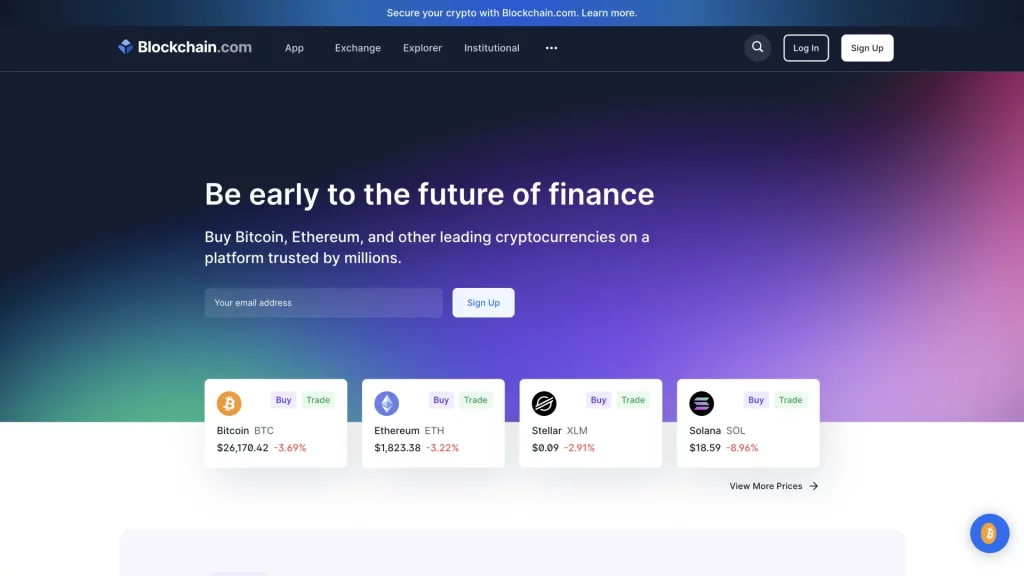
- €0.50 - $25
- spot trading
- margin trading
- staking 3
- Bitcoin
- Ethereum
- Bitcoin Cash 28
- Bank transfer
- Sepa
- Faster Payments 49
- English
- Spanish
- Portuguese 2
- Singapore
- Puerto Rico
- English
- Learn and Earn
- Podcasts
- Research and Analysis
3. LBank
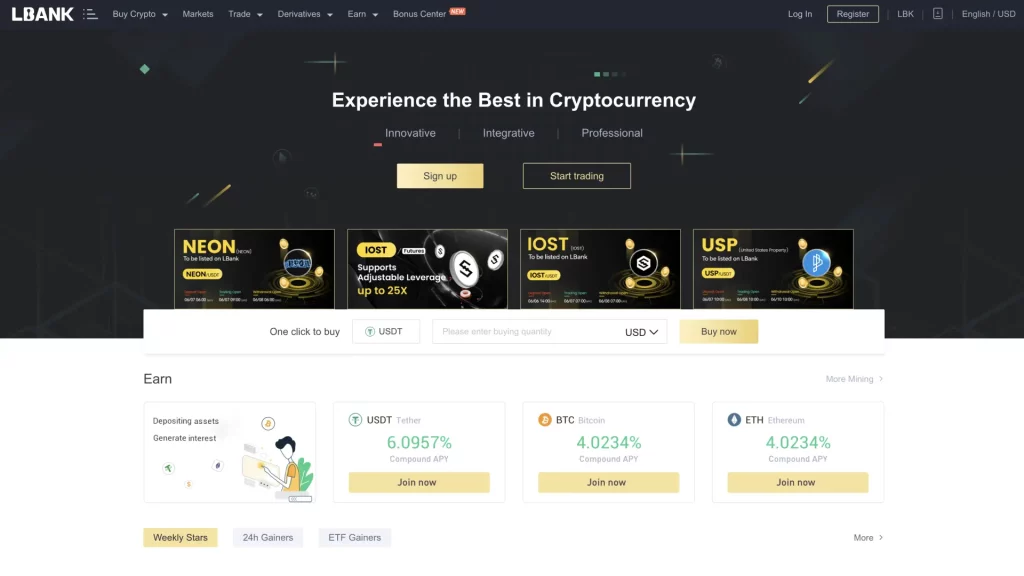
- 1750
- spot trading
- derivatives trading
- futures trading 5
- Ethereum
- Terra
- Polygon 241
- Visa
- MasterCard
- Bank transfer 255
- English
- Russian
- Spanish 27
- 2FA SMS
- 2FA Google Authenticator
- English
- Turkish
- Polish 24
- Academy
- Guides
- Videos
4. Binance TR
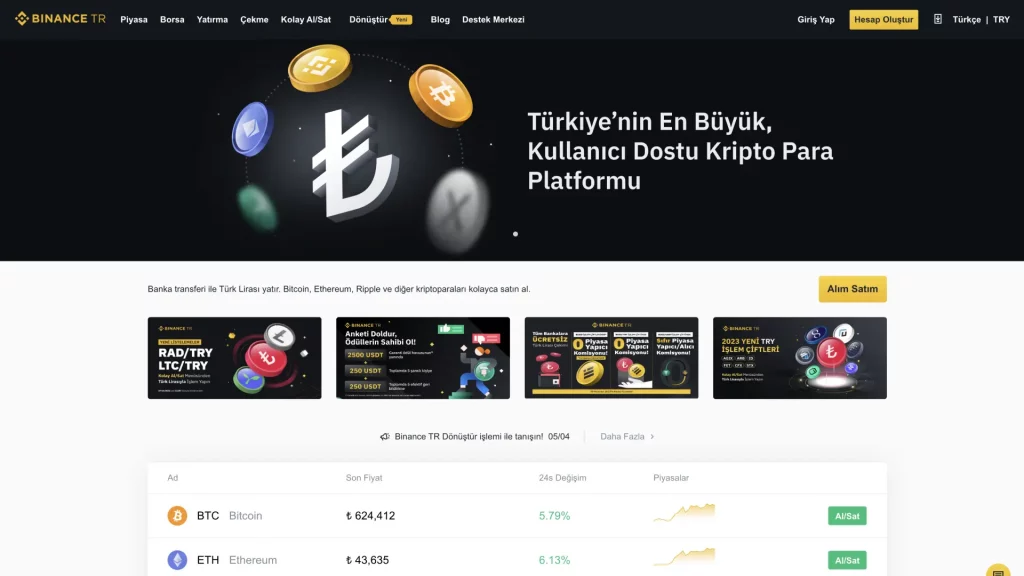
- 0.0002
- spot trading
- wallet
- Holo
- Internet Computer
- The Graph 80
- Bank transfer
- Ziraat Bankasi
- VakifBank 84
- English
- Turkish
- 2FA Mobile App
- 2FA SMS
- 2FA Google Authenticator
- Turkish
- English
- Blog
- Announcements
5. BitMEX
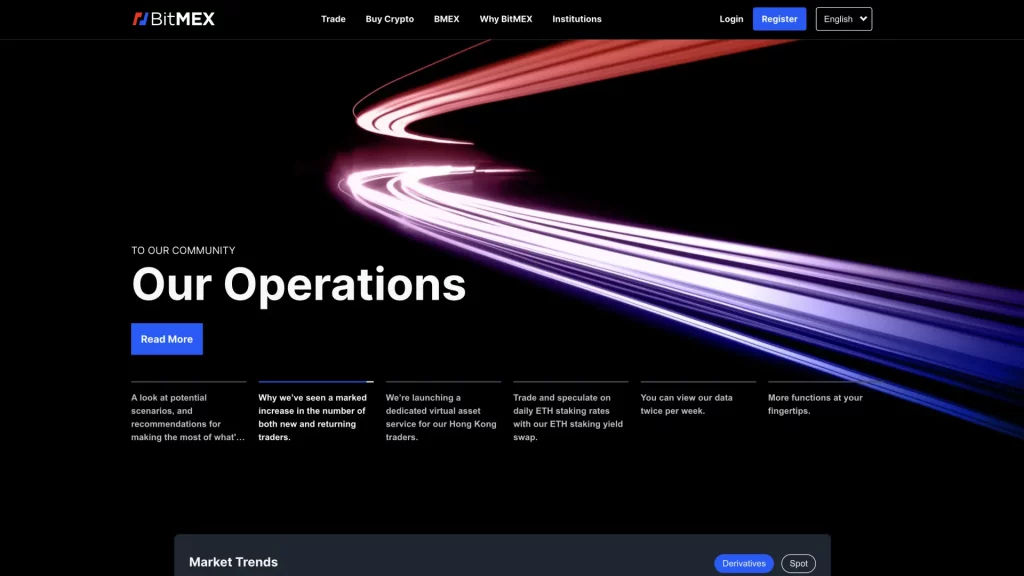
- Maker/Taker: 0.0200% - 0.0750%
- spot trading
- derivatives trading
- futures trading 3
- BitMEX Token
- Bitcoin
- TRON 8
- Visa
- MasterCard
- ApplePay 12
- English
- Russian
- Turkish 1
- 2FA Google Authenticator
- 2FA Authy
- Chinese (Mandarin)
- Korean
- Russian
- Knowledge Base
- Videos
- Guides
6. MEXC
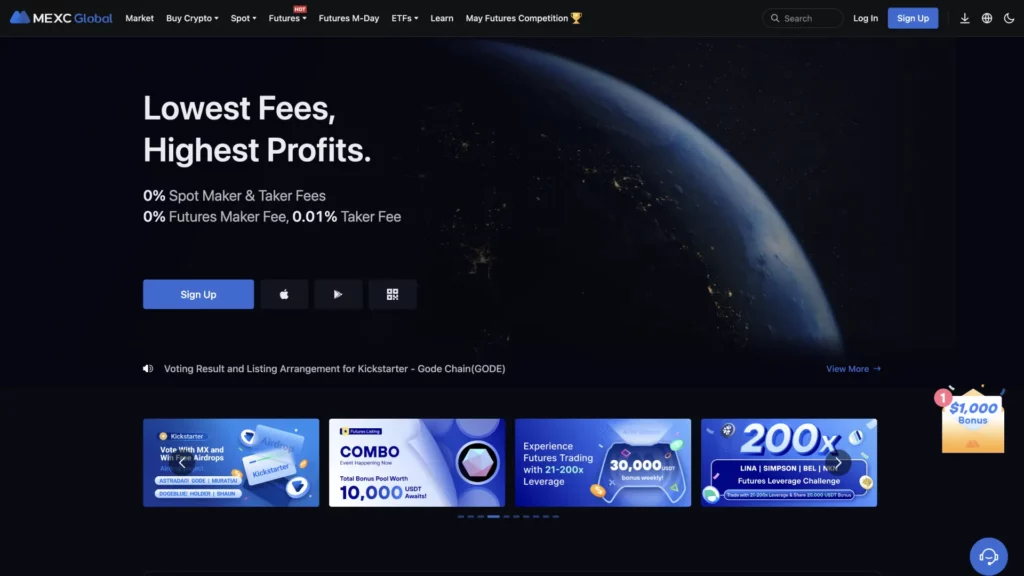
- Free
- spot trading
- derivatives trading
- futures trading 9
- SHIBA INU
- Wrapped Dogecoin
- ADAX 191
- Visa
- MasterCard
- Bank transfer 110
- English
- Russian
- Turkish 14
- Seychelles
- Estonia
- Switzerland 2
- 2FA Google Authenticator
- 2FA SMS
- English
- Turkish
- Vietnamese 5
- Videos
- Learn and Earn
- Blog 2
7. Okcoin

- 3.99%
- spot trading
- OTC trading
- staking 1
- Bitcoin
- Ethereum
- Tether 101
- Visa
- MasterCard
- ApplePay 107
- English
- United States
- Canada
- United Kingdom 26
- 2FA SMS
- 2FA Google Authenticator
- English
- Blog
- Developer Grant
- Videos 1
8. OKX
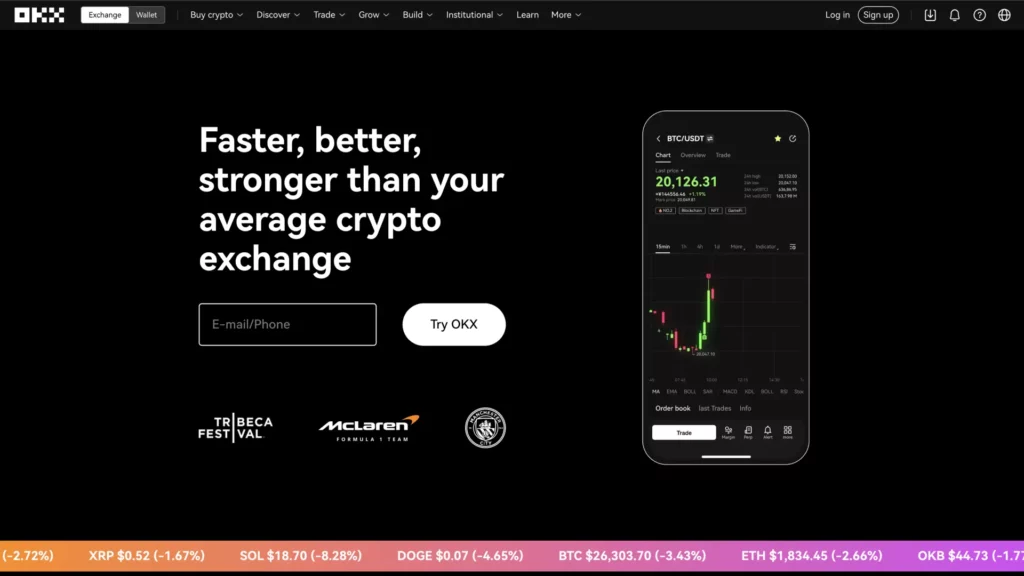
- Free
- spot trading
- derivatives trading
- perpetual swaps trading 9
- Tether
- Bitcoin
- Litecoin 92
- Bank transfer
- Visa
- MasterCard 344
- English
- Chinese (Mandarin)
- Simplified Chinese 14
- 2FA SMS
- 2FA Google Authenticator
- English
- Learn and Earn
- Announcements
- Videos
9. Phemex
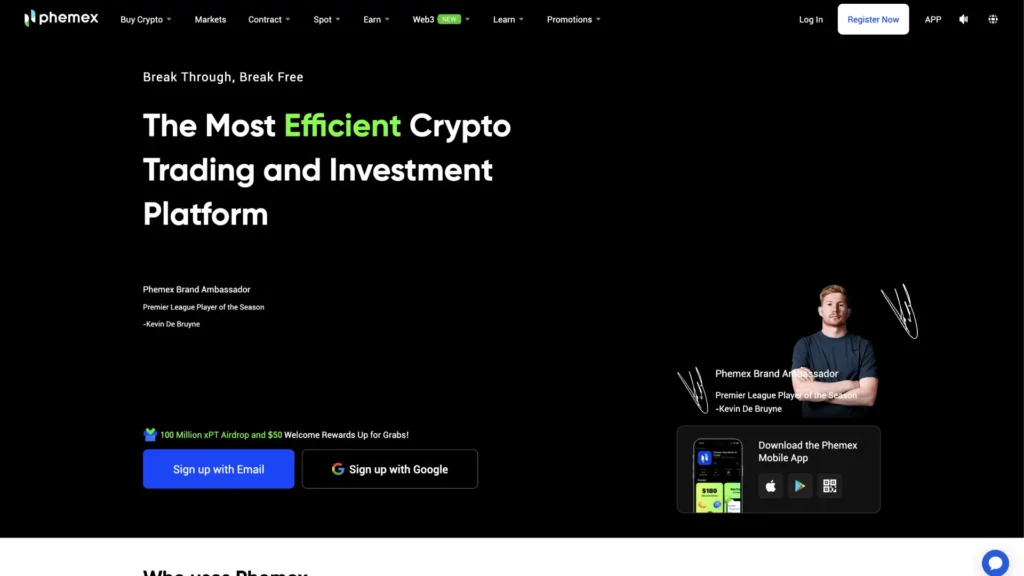
- 0.0001 BTC
- spot trading
- derivatives trading
- perpetual contracts trading 8
- Ethereum
- Cardano
- Chainlink 231
- SwiftCash
- Bank Transfer (ACH)
- Sepa 308
- English
- Russian
- Japanese 6
- 2FA Google Authenticator
- English
- Japanese
- German 2
- Blog
- Videos
- Academy 4
10. Poloniex
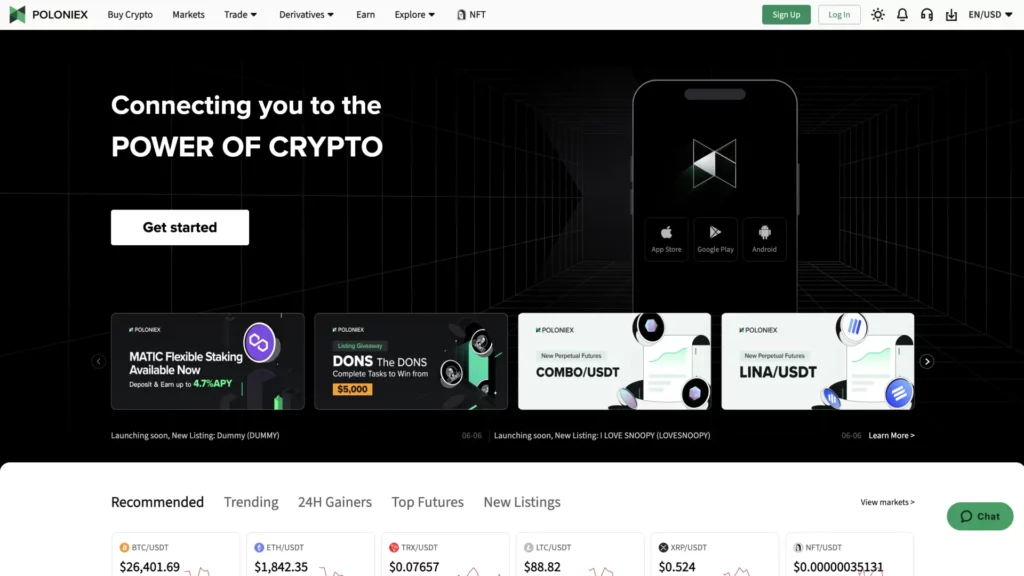
- 3.5% - 5%
- spot trading
- derivatives trading
- futures trading 7
- APENFT
- Bitcoin
- Ethereum 363
- Bank transfer
- Visa
- MasterCard 366
- English
- Chinese (Mandarin)
- Simplified Chinese 9
- Panama
- 2FA SMS
- 2FA Google Authenticator
- English
- Videos
- Guides
- Blog
You May Also Like
-
Best Crypto & Bitcoin Exchanges
-
Best Crypto & Bitcoin Exchanges in the USA
-
Best Tether Exchanges
-
Best USD Coin Exchanges
-
Best Crypto & Bitcoin Exchanges Canada
-
The Best Crypto Exchanges in the UK
-
Best Binance Coin Exchanges
-
Best XRP Exchanges
-
Best Cardano Exchanges
-
Best Litecoin Exchanges
-
Best Tron Exchanges
-
Best Polygon Exchanges
-
Best Avalanche Exchanges
- Show More
Overview of the Best Lowest Fee (Cheapest) Crypto & Bitcoin Exchanges in 2024
| Casino | Welcome Bonus | Our Rating |
|---|---|---|
| Binance | Get up to 100 USDT in trading fee rebate after full verification, first deposit, and first trade. | 4.83 |
| Blockchain.com | N/A | 4.83 |
| LBank | Get 255 USDT Bonus when you sign up. | 4.83 |
| Binance TR | Get a 50 USD Bonus when you Register and complete authentication. | 4.67 |
| BitMEX | Enjoy a 10% discount on BitMEX fees for six months when you register through a referral link. | 4.67 |
| MEXC | Get 5 USDT bonus when you deposit 300 USDT. | 4.67 |
| Okcoin | Receive $10 in Bitcoin when you register with a referral link and buy $100 worth of crypto on Okcoin. | 4.67 |
| OKX | Get mystery boxes worth up to $10,000 when you register through a referral from a friend. | 4.67 |
| Phemex | Earn up to $6050 in crypto when you sign up | 4.67 |
| Poloniex | Get Up to $1000 Welcome bonus when you sign up and complete tasks. | 4.67 |

Disclaimer: Investing in cryptocurrencies carries significant risk. Values are highly volatile. Never invest more than you can afford to lose. This site does not provide financial advice. Act based on your own research and consult with a financial professional before making decisions. Don’t invest unless you’re prepared to lose all the money you invest.
What to Consider When Selecting the Cheapest Crypto & Bitcoin Exchanges
The fee is definitely one of the main factors to consider if you are looking for the cheapest crypto & Bitcoin exchange. Of course, we will also discuss other key factors that will ensure you have a seamless trading experience. Let's dive in.
Consider the fees
Let's get real about fees – every exchange charges them. When it comes to crypto investing, fees can have a significant impact on your profits and losses. This is why it's essential to compare the fee structures of different crypto exchanges before you make a decision.
- Deposit fees: Initially, you might encounter deposit fees when transferring funds from your bank or e-Wallet to the exchange. These fees can differ depending on the cryptocurrency trading platform and the deposit method.
- Trading fees: There will also be some charges when you begin trading. These trading fees are applied to each trade and are usually calculated as a percentage of the transaction value. The exact percentage can vary between exchanges, and can also be affected by factors like your trading volume.
- Withdrawal charges. The withdrawal fees usually cover the cost of transferring your coins to an external wallet or a different exchange. Just like deposit fees, the exact amount can differ depending on factors such as the specific cryptocurrency.
Although our top crypto & Bitcoin exchanges offer considerably low charges, be sure to compare different platforms. Remember that some exchanges might offer reduced fees or other incentives for using their native tokens.
Which cryptocurrencies are supported?
When you pick a crypto app exchange, find one that supports a broad selection of digital coins. Why should you do this? Well, first off, having a variety of crypto options opens up more investment possibilities.
Remember, each crypto type has unique features, potential growth, and uses. As such, access to a wide selection of coins help you to diversify your portfolio and reduce your investment risk.
In addition, if a crypto trading exchange supports many cryptocurrencies, it is a sign of a good reputation. The best crypto exchanges focus on listing established and reputable coins. Better yet, our recommended trading sites feature both major and minor coins.
Some of the key cryptos that you'll find in these exchanges include
- Bitcoin
- Ethereum
- Ripple
- Litecoin
- Cardano
Is high liquidity a feature of the crypto and Bitcoin exchange?
We always advise you to choose a crypto exchange with high liquidity. Liquidity refers to how easily an asset can be bought or sold without causing significant price changes.
High liquidity guarantees;
- An active market. This consists of many users buying and selling cryptocurrencies. In this case, you don't have to deal with delays when you place a trade.
- Helps reduce the bid-ask spread. This is the gap between the buyer's max price and the seller's min price. A smaller spread can mean more favorable entry and exit points, allowing you to maximize profits.
- An exchange with high liquidity offers better price stability. This is because, with a large trading volume, the prices of cryptocurrencies are less prone to big swings. This stability inspires confidence, allowing you to make decisions based on market trends and analysis.
To check an exchange's liquidity, you can use resources like CoinMarketCap, CoinGecko, or CryptoCompare. These sites offer information on trading volume and the liquidity of different exchanges.
Make sure you're safe
Now, let's talk about security, an aspect you should never overlook when choosing a crypto exchange. The unfortunate reality is that crypto exchanges are vulnerable to hacks, and you don't want to risk your hard-earned funds.
One important feature is two-factor authentication, or 2FA. This is like a double-check on your identity. Basically, you not only need your password to log in, but also a unique code that's sent to your mobile device. This gives you peace of mind, since hackers cannot access your account even if they figure out your password.
Learning the ropes with crypto and Bitcoin exchanges
Our best lowest-fee bitcoin exchanges understand that education is key for traders. By providing learning resources, they ensure that you have the knowledge to help you make informed decisions.
Educational resources start with the basics:
- What are cryptocurrencies and blockchain technology?
- How do crypto exchanges work?
- What are wallets, private keys, and decentralized finance (DeFi)?
- How do you stay secure?
When you truly understand these concepts, you can make sound decisions. These resources also help you understand the risks of investing in crypto.
You'll also learn about market volatility, regulatory matters, and the possibility of losses. Good trading is not just about spotting opportunities - it's also about managing risk wisely.
Types of educational resources
The best lowest-fee Bitcoin trading platforms offer various educational resources. Here are a few of them:
- Crypto basics: These cover the basics of digital coins. You will find topics on blockchain technology, popular cryptos, and digital wallets. It's often presented in easy-to-understand guides, articles, and FAQs.
- Trading strategies: If you want to go beyond basics, you can learn about different trading strategies. There might be tutorials, e-books, or videos that delve into technical topics. These are great if you want to learn technical analysis of chart patterns and trade indicators.
- Market analysis: The market analysis resources will help you know crypto price movement trends and news.
Are the most economical crypto and Bitcoin exchanges licensed?
When you choose a crypto exchange, always confirm that it is licensed. A license is a sign that the Bitcoin trading exchange is compliant with the rules that protect you.
Let me take you through some of the reasons why you should stay away from unlicensed exchanges:
- Legal protection: Unlicensed exchanges do not comply with any legal or regulatory framework. This means you won't have legal protection if you run into disputes or financial losses.
- Security measures: Licensed exchanges need to follow strict security protocols. Unlicensed ones may not have the necessary security infrastructure in place. Unfortunately, they are vulnerable to online hacks.
- Financial practices: Top crypto exchanges are required to maintain certain financial standards. On the other hand, rogue sites may not be transparent. They could manipulate the market or misuse your funds.
- Transparency: The best exchanges publish regular audits and reports. This is not the case with unlicensed crypto sites. As such, it is hard to check their financial or operational practices.
In summary, using a licensed crypto exchange means trading in a safer environment. It reduces risks associated with fraud and security breaches.
Exploring available trading products
Alright, let's start by talking about the heart of crypto exchanges - their trading platforms. Crypto exchanges are like a supermarket for traders. They've got all kinds of platforms to suit everyone's needs.
Some are designed for expert traders. These use advanced order books, and you can customize some of the chart analysis tools.
Fortunately, even as a beginner, you can still find a tool that works for you. For example, you can use the web-based interface, which is easier to explore.
Our best and cheapest cryptocurrency exchanges have easy navigation and simple charting tools. Many exchanges also offer mobile apps, so you can trade wherever you are.
Now, for those who like a bit more challenge, there are advanced trading platforms. These come loaded with features like margin, future, and options trading.
To help you manage your trades, these sites have tools like stop-loss and take-profit options.
Spot, margin, and future trading
- Spot Trading: Spot trading means buying or selling digital assets at the current market price, with transactions completed in real-time. Spot trading is simple, since you acquire or dispose of your assets right away.
- Margin Trading: Think of margin trading as getting a loan from a crypto exchange to boost your buying power. It's a bit like gambling. The crypto exchange lets you leverage your cash to increase possible gains or losses. In this sense, you can place more trades than your account balance would actually allow.
- Futures Trading: In the world of crypto, futures trading is like taking a peek into a crystal ball. You buy or sell contracts that promise you'll trade a specific quantity of crypto at a fixed price and date in the future.
It's a way for you to guess the price movements of your preferred coin without actually owning it. These contracts can act as your magic wand, allowing you to profit whether the markets are soaring or sinking.
How to Fund Lowest-fee Crypto and Bitcoin Exchange
The banking method you use to deposit into your crypto exchange can make or break your overall experience. I always recommend selecting the most convenient option. In most cases, e-Wallets and credit cards are the most preferred. These payment methods are also known for their low transaction charges.
PayPal
Ah, good old PayPal. This e-Wallet is not only for everyday payments. You can still use it in the best lowest-fee crypto exchanges. What are the benefits of using PayPal? Speed and security.
Your deposits and withdrawals are processed fast. In addition, this banking option uses advanced SSL encryption. This ensures that all your personal and financial details are secure. Added to this, the transaction costs are considerably low.
Credit/debit card
Visa and MasterCard, much like universal keys, are widely accepted on the best and cheapest crypto exchanges. These bank cards allow you to send money directly from your bank to the exchange. Top credit cards like Visa and MasterCard have robust security features. This means that you don't have to worry about sharing your card details with the exchange. Aside from this, our top cheapest cryptocurrency exchanges follow anti-money laundering regulations.
Bank transfer
Bank transfers are your go-to option in regions where credit card use is challenging. Even in places with limited financial infrastructure, you can use bank transfer to fund your crypto apps. And guess what? Some transfers can be processed instantly! Thanks to advancements in financial technology, you can swiftly move funds from your bank to crypto apps.
Digital tokens
Digital tokens are becoming the preferred payment method on crypto-only platforms and for good reasons. They operate on decentralized networks like the blockchain. This means that they are more secure against fraud. Also, all transactions are encrypted, so only the intended parties can access the information. Plus, using digital tokens keeps your identity private.
Types of Crypto and Bitcoin Exchanges
There are three main crypto & Bitcoin exchanges that you can choose from. They include centralized, decentralized, and Hybrid exchanges.
Centralized Crypto & Bitcoin Exchanges (CEXs)
A centralized crypto exchange is a platform where you can buy, sell, and trade different digital coins. It works like a regular stock exchange where you can trade stocks or currencies.
However, in a CEX, there is a central authority or company that controls and manages the exchange. This company acts as a middleman between buyers and sellers. It also checks that transactions are secure and run smoothly.
Another role of the company is managing the order books. These order books are like lists of all the buy and sell orders from crypto traders.
For example, when you want to buy Bitcoin, you only need to place a buy order on the exchange. The crypto exchange will match and execute the trade if someone is willing to sell at your price.
As a beginner, I would recommend you start with a CEX exchange. This is because these Bitcoin trading platforms have easy-to-use websites.
However, because the exchange is controlled by a central authority, some level of trust is needed. You need to trust that the exchange will handle your funds properly and keep them secure.
Although centralized exchanges provide convenience and safety, they also pose some risks. For instance, if the exchange gets hacked, there is a chance that your funds could be lost.
This is why we only recommend you sign up at only the best crypto apps. Check our list of the best crypto trading platforms in the section above.
Advantages of centralized crypto exchanges
- Liquidity: Centralized exchanges often have higher liquidity compared to DEXs. This makes it easy for you to execute trades fast and at reasonable prices.
- User-friendly interface: These BTC trading apps offer simple and user-friendly interfaces. As a result, the sites are accessible to many users, including beginners. You will also find advanced features like stop-loss orders and charting tools.
- Security measures: Top centralized exchanges have reliable security measures. This is thanks to the use of cold storage, which keeps your funds offline. Other security measures include two-factor authentication and encryption features.
- Customer support: The best Bitcoin exchanges offer reliable customer support services to address your issues. This is important, especially if you are new to cryptocurrency trading. With such sites, you are assured to get help in your trading journey.
Disadvantages of centralized crypto exchanges
- Lack of control: a centralized exchange requires you to trust the site with your funds. This means that you won't have full control over your assets.
- KYC/AML requirements: When you sign up, you have to complete Know Your Customer documents. You will most likely be asked to submit personal information and documentation. However, this can affect your privacy and expose you to potential data breaches.
- Potential for manipulation: The centralized nature of exchanges means that they can face market manipulation and insider trading. There have been instances where trading crypto sites have faced allegations of processing unauthorized trades. This affects the fairness and transparency of the market.
- Vulnerability to downtime: CEXs can face technical issues or massive trading volumes. These aspects can lead to downtime. During such periods, you may not have to access your funds. Worse still, this can result in potential missed opportunities or loss of funds.
- Regulatory compliance: Centralized exchanges are subject to regulatory laws and legal requirements. Unfortunately, these regulations can lead to restrictions of users from certain jurisdictions.
Decentralized crypto & bitcoin exchanges
A decentralized exchange is like a CEX exchange, but without any big company calling the shots. Instead, it's run by people on the network, making it fair and open to all.
The best thing about a decentralized site is that it lets you trade cryptos directly with other traders. No middleman is involved.
To add to this, you don't have to trust a company with your money or trades. Instead, smart contracts handle everything. Smart contracts are like self-executing agreements stored on the blockchain.
Using a DEX is simple. You connect your cryptocurrency wallet straight to the exchange platform, so you're always in control of your funds.
Security is a big plus with decentralized exchanges. Since your money stays in your wallet, it's way less likely to get hacked or stolen. And because everything happens on the blockchain, it's super transparent and trustworthy.
On the downside, DEXs might have less trading activity, making it harder to find people to trade certain coins with. Plus, the user experience might not be as smooth or quick.
But all in all, decentralized exchanges are a great option for trading crypto. They offer security, control, and transparency, letting you participate directly in the crypto market without relying on a big company.
Advantages of decentralized exchanges
- Security: DEXs offer a higher level of security compared to centralized exchanges. Your funds are stored in your own wallet, so there's no one central point for hackers to attack.
- Control: One of the best things about DEXs is that you have full control over your funds. You don't need to hand over your crypto to the exchange or trust a third party with your assets. This keeps you in the driver's seat and reduces the risk of mismanagement.
- Privacy: If privacy is important to you, DEXs have got your back! You can trade cryptocurrencies without giving away personal info like your name or address. This way, you can protect your identity and financial details from any potential misuse.
- Global accessibility: No matter where you are in the world, DEXs are there for you. You can join in on the fun as long as you have an internet connection. There are no restrictions based on where you live, making crypto trading more inclusive.
- Transparency: DEX transactions are recorded on a public blockchain. To this end, they are transparent and can't be tampered with. This builds trust among users, as everyone can verify transactions and make sure everything's fair.
Disadvantages of decentralized exchanges
- Low liquidity: DEXs might not be as bustling as their centralized counterparts. Sometimes, finding buyers or sellers for certain cryptocurrencies can be a bit tricky. This could mean slower trades and less attractive prices.
- Not the best user experience: Using DEXs can take a bit more effort to get used to. The interfaces are less beginner-friendly, and it might seem like there's a lot of technical stuff to figure.
- Limited features: Unlike centralized exchanges, some fancy features might be missing on DEXs. You are less likely to find tools like margin trading or futures contracts.
- Dependence on Blockchain: DEXs rely on blockchain networks for transactions. This can sometimes mean slower processing times and higher fees, especially during busy times.
- Regulatory uncertainty: Since DEXs don't have a central authority, they can face regulatory issues. The rules around cryptos and DEXs are still evolving, which could lead to some compliance risks.
Hybrid Crypto & Bitcoin Exchange
A hybrid exchange brings together the best of centralized and decentralized exchanges.
With a hybrid exchange, you get the security and easy-to-use features of a centralized exchange. This trading app is managed by a central entity. You can therefore trade with confidence, since the app guarantees you fast and safe transactions.
But wait, there's more! The hybrid exchange also taps into the power of decentralization. How? Well, they use smart contracts and blockchain technology. This, in turn, gives you more control over your funds and privacy. That means you can trade with peace of mind, knowing your assets are safer and less prone to hacking.
And guess what? You can even trade directly with other users in a peer-to-peer style.
Advantages of hybrid crypto exchanges
- High security: With hybrid exchanges, you're in charge of your private keys. This means your funds are way safer from hackers or thieves.
- Protects your privacy: No need for long and intrusive KYC processes. Your identity and personal info stay protected.
- Fast and easy trading: Say goodbye to slow transactions. Hybrid exchanges make sure your trades happen quickly.
- Lots of cryptos: You'll have a wide range of cryptocurrencies to choose from. It's like having a buffet of betting and investing options!
- User-friendly: Even if you're new to this, hybrid exchanges are designed to be super easy to use. You'll feel confident navigating through them.
Disadvantages of hybrid crypto exchanges
- Not fully decentralized: Although they have some decentralization, hybrid exchanges still rely on centralized servers for processing orders. That means there's a tiny chance of attacks.
- Regulatory challenges: Some hybrid exchanges might not have strict KYC rules. This could cause problems with regulations in certain jurisdictions.
- Security issues: Unlike DEXs, you have to rely on the exchange's security measures to protect your assets.
- Liquidity concerns: Hybrid exchanges might not have as much trading activity as top CEXs. This could lead to higher costs for transactions.
How Crypto Exchanges Work: A Beginner's Guide
Cryptocurrency exchanges are like digital marketplaces where you can buy, sell and trade digital currencies. If you're new to this exciting crypto-trading world, don't worry – it's simpler than it sounds! Let me walk you through the process step-by-step.
Step 1: Sign up and create an account
To get started, sign up on a cryptocurrency exchange platform. You can choose one of the best crypto trading apps listed in this guide. The registration process is seamless, and you only need to provide a few details.
Step 2: Set up your digital wallet
Once you have an account, you'll need a digital wallet. Think of it as a virtual bank account for your digital money. The wallet keeps your cryptocurrencies safe and secure. Some exchanges provide wallets, or may recommend a trusted one for you to use.
Step 3: Deposit funds
Before you place a buy/sell order, you'll need to deposit funds into your exchange account. This is similar to putting money in your bank account. You can do this by linking your bank account or using another cryptocurrency to make a deposit.
Step 4: Start trading
Now comes the fun part – trading! The exchange will show you a list of available cryptocurrencies and their current prices. If you want to buy a specific cryptocurrency, you can place an order and choose the amount you want to buy. If you want to sell your cryptocurrencies, you can set the price and amount you want to sell.
Step 5: Your order gets matched
Behind the scenes, the exchange matches your buy or sell order with someone else's order. When the user is willing to sell at the price you specified, the exchange will complete the trade. The cryptocurrency you bought will then be transferred from the seller's account to yours.
Step 6: Keeping your account secure
The best crypto trading apps prioritize your security. These exchanges use advanced encryption to protect your account and funds from any potential hackers. To enhance your safety, you can set a two-factor authentication.
Step 7: Withdraw your cryptocurrencies
If you want to move your digital coins to an external wallet or another Bitcoin trading platform, you can request a withdrawal. The exchange will transfer your digital assets to the wallet address you provide.
That's it! You're now ready to dive into the world of crypto-trading. Remember to start small, do your research, and never invest more than you can afford to lose.
Final Word
From Binance to Poloniex, these platforms showcase varying features, bonuses, and coin selections to cater to diverse trading needs. However, it's important to remember that while low fees are crucial, other factors are important too. Things like security, supported cryptocurrencies, liquidity, and educational resources also play significant roles in choosing the right exchange.
Whether you're a novice or an experienced trader, our guide aims to provide valuable insights into the key considerations when selecting a crypto exchange. Remember, investing in cryptocurrencies involves risk, and users should consult with a financial professional before making any investment decisions.
Frequently Asked Questions
What services are provided by crypto & Bitcoin exchanges?
Crypto & Bitcoin exchanges are platforms where you can buy, sell, and trade cryptocurrencies like Bitcoin. They keep your digital assets safe in secure wallets and show real-time market info. Some even have advanced features like margin trading tools.
What are the different types of Bitcoin exchanges?
BTC exchanges come in three types: centralized, decentralized, and hybrid. In a centralized exchange, a company acts as a middleman between the buyers and sellers. Decentralized exchanges work on blockchains, letting you transact directly with other users, thus boosting control. Hybrid exchanges combine features of centralized and decentralized trading sites.
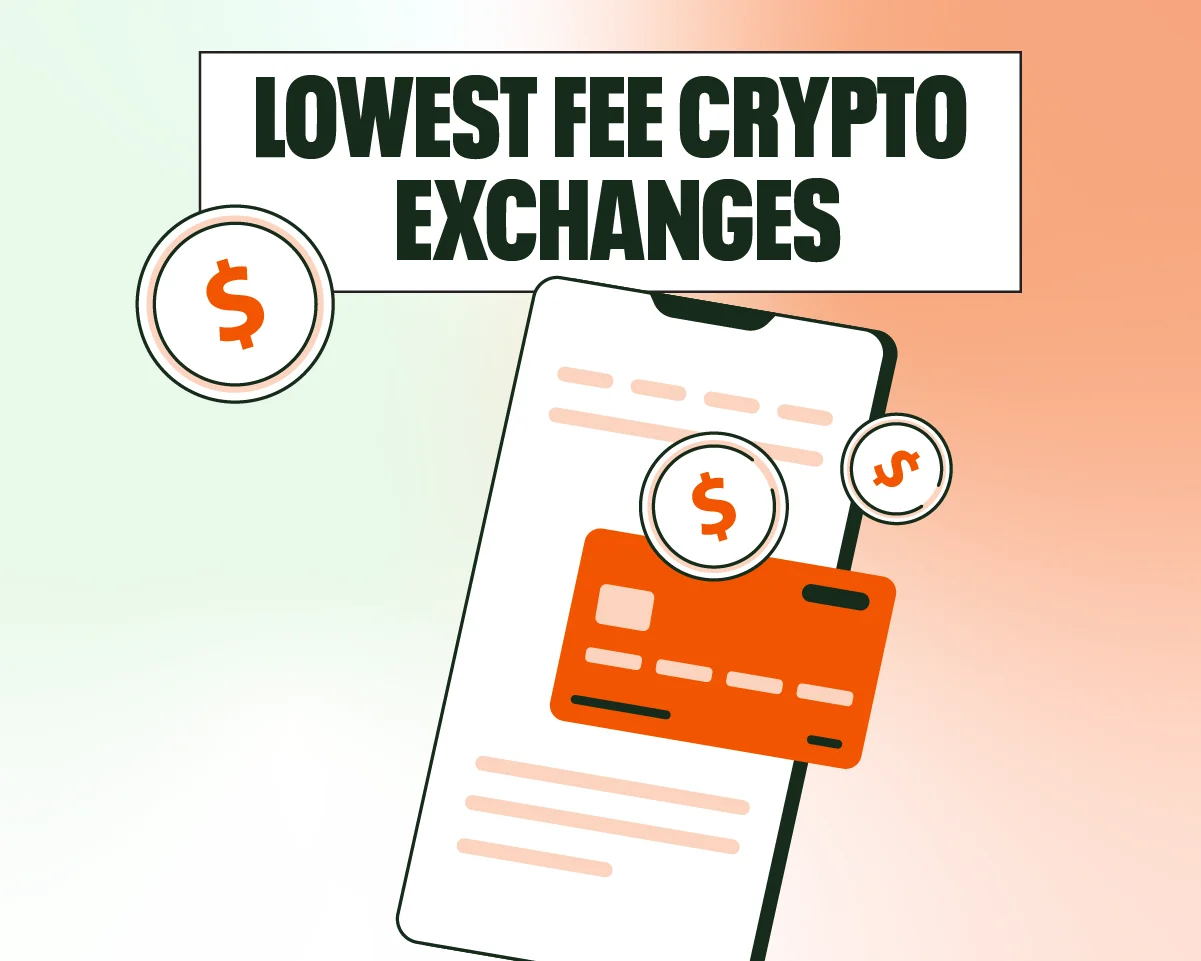



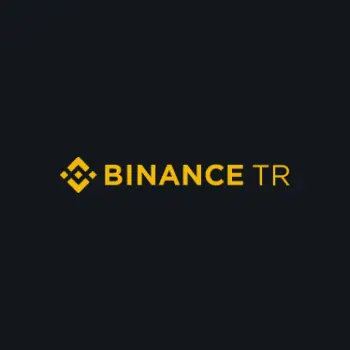
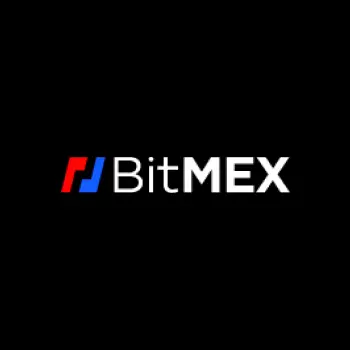



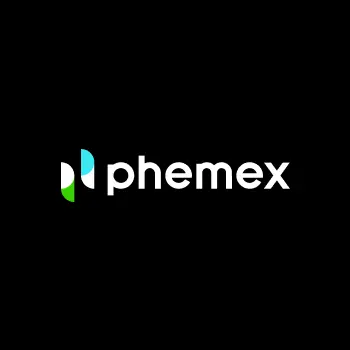

.png)